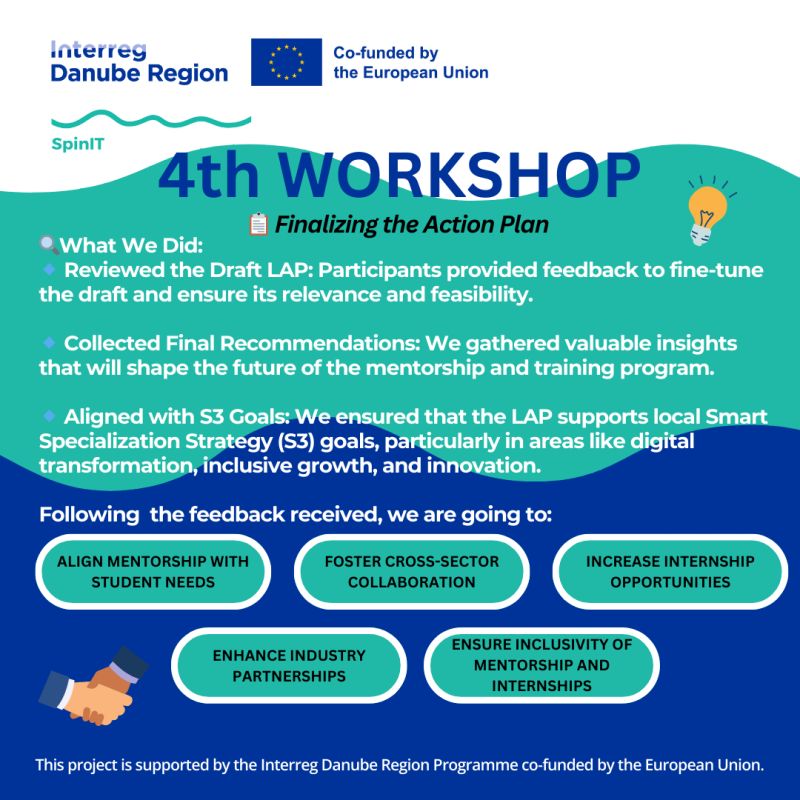📋 Finalizing the Action Plan: The 4th SpinIT Workshop
The journey towards building a strong and impactful Local Action Plan (LAP) is nearly complete! 🚀
We’re excited to share the insights and key recommendations from our 4th Local Discovery Group Workshop, where we gathered essential input to finalize the LAP that will guide the mentorship and training program for university students. Here’s a look at what happened:
What We Did:
During this workshop, we took the draft LAP and engaged in meaningful discussions to ensure it aligns with the needs of students and regional priorities. The session focused on:
🔹 Reviewing the Draft LAP: Participants provided feedback to fine-tune the draft and ensure its relevance and feasibility.
🔹 Collecting Final Recommendations: We gathered valuable insights that will shape the future of the mentorship and training program.
🔹 Aligning with S3 Goals: We ensured that the LAP supports local Smart Specialization Strategy (S3) goals, particularly in areas like digital transformation, inclusive growth, and innovation.
💡 Key Discussion Points:
Student Preparation: Participants highlighted the need for a tailored mentorship program that aligns with the academic backgrounds of students, particularly those in European Studies and Political Science. This ensures they are well-prepared for the challenges of EU-funded projects.
Cross-Sector Collaboration: The importance of fostering collaboration between businesses, academia, and government was emphasized to strengthen the broader goals of EU policy alignment.
Practical Experience Integration: Suggestions were made to provide students with more opportunities for internships and real-world project experience to bridge the gap between theoretical knowledge and practical application.
📝 Final Recommendations for the LAP:
Based on the feedback received, the following key recommendations were made:
– Align Mentorship with Student Needs: Tailor the mentorship program to the specific needs of students, ensuring they are equipped with the skills required for EU project management and cross-sector collaboration.
– Foster Cross-Sector Collaboration: Strengthen partnerships between business, academia, and government to provide students with diverse perspectives and practical experiences.
– Increase Practical Experience Opportunities: Expand the availability of internships and real-life project experiences to help students apply their knowledge in real-world EU projects.
– Enhance Industry Partnerships: Build stronger ties with SMEs, NGOs, and EU institutions to offer more internship and mentorship opportunities.
– Ensure Inclusivity: Make the mentorship and internship opportunities accessible to students from diverse backgrounds, ensuring equal access to career-building experiences.
Following these next steps, 🙌 together, we are shaping the future of EU project management and policy development!
hashtag#SpinIT hashtag#InterregDanube hashtag#ICTCollaboration hashtag#ICT hashtag#Industry 4.0 hashtag#ICTCrossSectoralCollaboration

